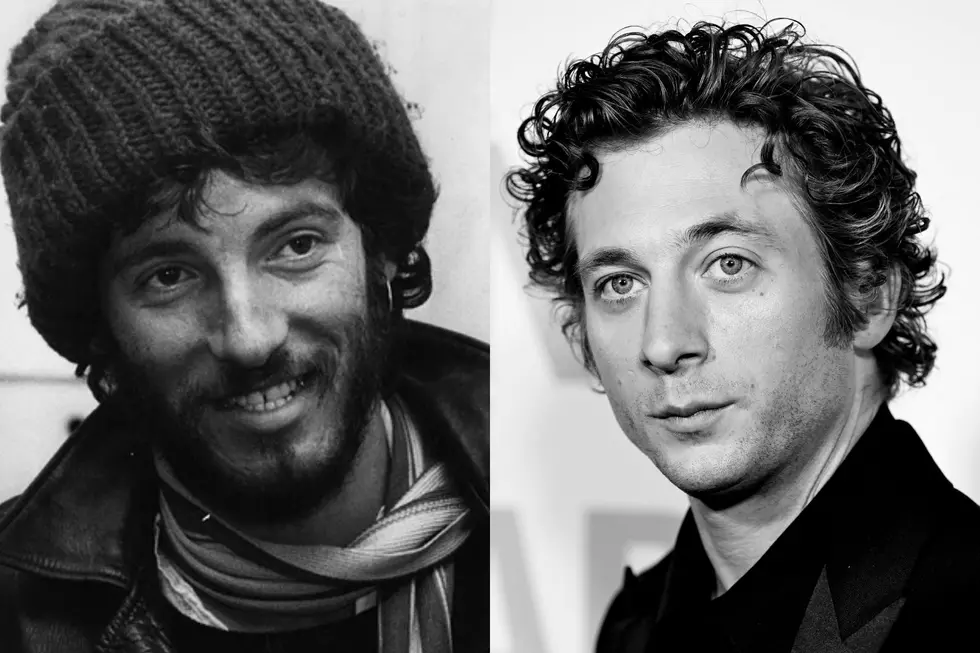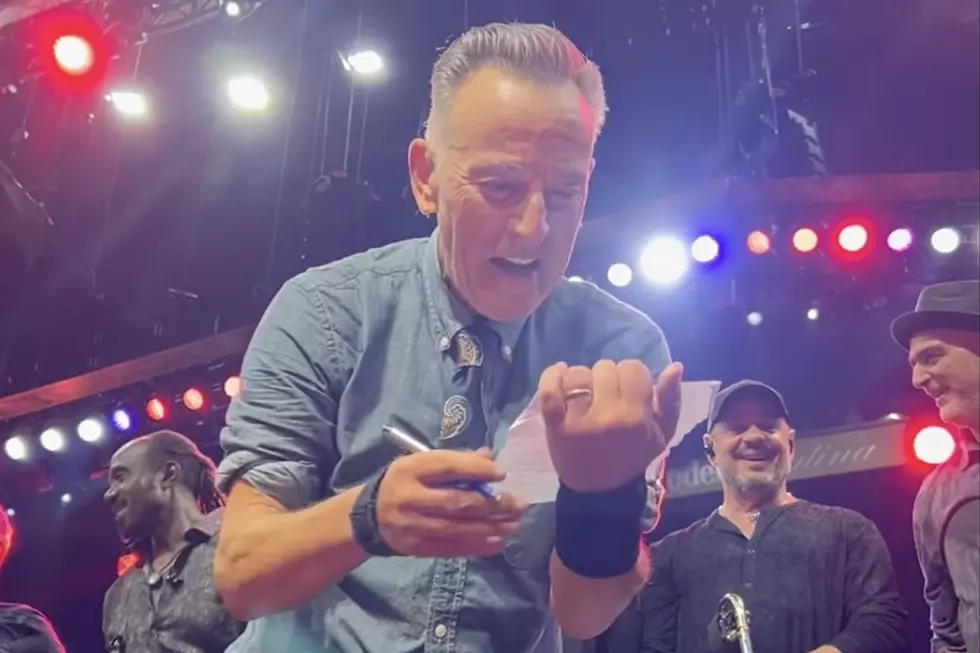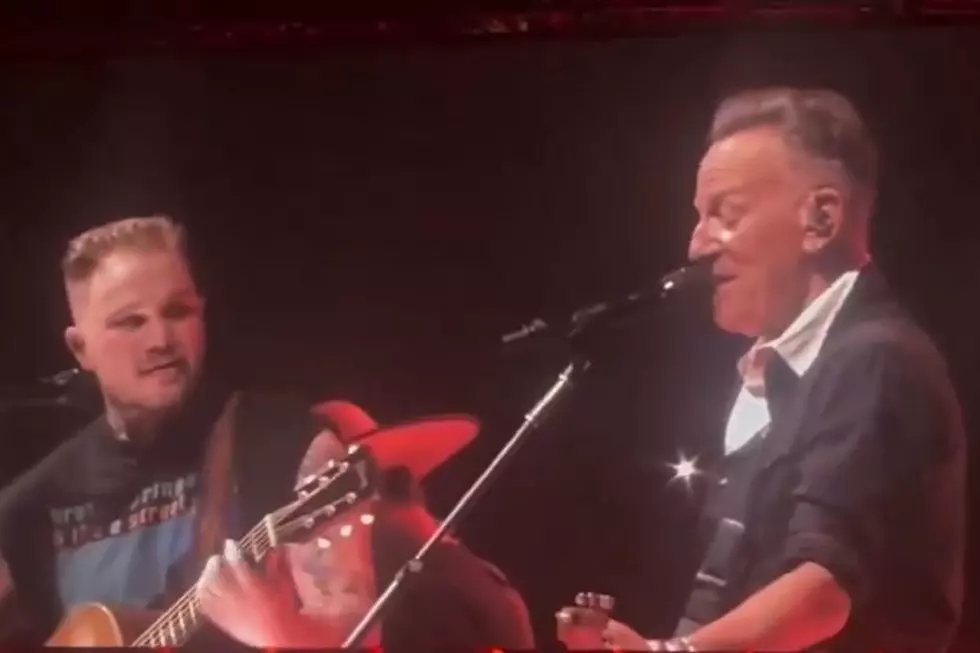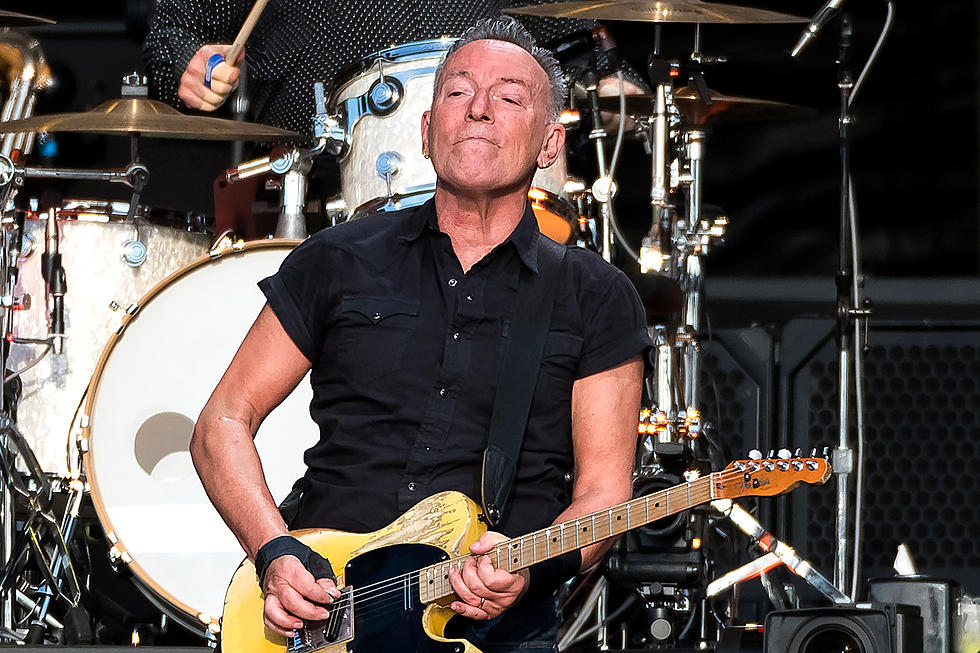
Top 10 Bruce Springsteen Political Songs
Bruce Springsteen isn't really a "political" songwriter in the sense of him being an advocate for a position. Most of his songs are more about people who are marginalized -- which happens regardless of which party is in power -- and how they live with the results. Still, there have been times where he's been compelled to take a stand and call out those in power, either with benefit concerts or in his songwriting. With the presidential election entering its final stages, we thought we'd list Bruce Springteen's Top Ten Political Songs.
- 10
'Long Walk Home'
From: 'Magic' (2007)Released in 2007, 'Magic,' a dark and angry look at the presidency of George W. Bush, contained some of Bruce Springsteen's most explicitly political songs. Three years earlier, Bruce Springsteen participated in the Vote For Change tour to raise funds for a get-out-the-vote organization and criticized Bush from the stage. But 'Magic' also pointed fingers at those who allowed this to happen by abdicating their responsibility to the Constitution. Among its best songs was 'Long Walk Home,' which refers to both the narrator's journey as well as the country's return to its core values.
- 9
'War'
From: 'Live 1975-85' (1986)Springsteen's cover of Edwin Starr's 1970 Motown classic, which appeared on his 'Live 1975-85' box set, is unremarkable outside of some scorching guitar work by Nils Lofgren. But it's the speech beforehand, where he says that "blind faith in your leaders, or in anything, will get you killed" that helps earn its place here. At the height of Ronald Reagan's popularity, few had the courage to speak out in this manner.
- 8
'Lost In The Flood'
From: 'Greetings from Asbury Park, N.J.' (1973)On his debut album, 'Greetings from Asbury Park, N.J.,' Springsteen describes a Vietnam veteran returning home, only to find a country in ruins. Gang violence, drug abuse and religious hypocrisy run rampant as onlookers are desensitized by the bleak urban landscape. It's the first example of the style of storytelling that would later cause others to proclaim him a "blue-collar hero."
- 7
'The Ghost of Tom Joad'
From: 'The Ghost of Tom Joad' (1995)Bruce Springsteen's 1995 sparse album took its name from the protagonist of John Steinbeck's 1939 novel 'The Grapes of Wrath.' In the middle of the economic boom of the 1990s, Springsteen's opening title track reminds us that there are still plenty of people living in the margins who need somebody to fight on their behalf.
- 6
'We Are Alive'
From: 'Wrecking Ball' (2012)The closing song of this year's 'Wrecking Ball' can be seen as the flipside to 'Tom Joad.' A late-night walk through a cemetery finds Springsteen visited by the ghosts of those who died fighting for a better way of life in America, evoking the labor, civil rights and immigration movements. The struggle is still going on, he says, but their spirits can be found inside those who are fighting for social and economic justice today.
- 5
'Death To My Hometown'
From: 'Wrecking Ball' (2012)Set to a defiant Celtic-punk stomp, 'Death to My Hometown' says that the economic collapse of 2008 was the result of a bloodless war waged by greedy bankers against innocent citizens. He uses outdated words like "marauders" and "robber barons" to suggest that this has happened throughout American history. But what makes it political is the coda, where he rails against the justice system for their inability to hold the bankers criminally accountable for their actions.
- 4
'Born in the U.S.A.'
From: 'Born in the U.S.A.' (1984)Quite possibly the most misunderstood song in all of rock history, 'Born in the U.S.A.' isn't about patriotic pride but instead deals with the way our country turned its back on Vietnam veterans when they returned home. Max Weinberg's militant drums match Springsteen's angry vocals shot-for-shot, especially during the false ending.
- 3
'Roulette'
From: 'One Step Up' (1988)The Three Mile Island meltdown in March 1979 caused Bruce Springsteen to speak out politically for the first time in his career. He participated in the No Nukes concerts that September and wrote 'Roulette' about someone being forced to evacuate their home due to a nuclear emergency and getting no answer from the authorities. Arguably the most blistering rock the E Street Band have ever recorded, Springsteen, fearing backlash, kept 'Roulette' unreleased until 1988, when it appeared as the B-side to 'One Step Up.' It received a wider audience on 1998's 'Tracks' box set.
- 2
'How Can A Poor Man Stand Such Times and Live?'
From: 'Live in Dublin' (2007)Written in the aftermath of Hurricane Katrina, this song describes the chaos in New Orleans as the president did nothing besides drop in for a photo opportunity. Springsteen performed this, which he dedicated to "President Bystander," during his 2006 tour with the Americana side project the Sessions Band amid many traditional folk songs of protest.
- 1
'American Skin (41 Shots)'
From: 'Live in New York City' (2001)Bruce Springsteen's best political song caused controversy with the New York Police Department -- a core group of his fanbase -- for writing about Amadou Diallo, the unarmed Guinean immigrant who was killed by four NYPD cops in 1999. Had they heard the song before making up their minds, they would have realized that 'American Skin' was empathetic to the police, while still expressing outrage at the tragedy. Springsteen performed this several times early on the 'Wrecking Ball' tour while the Trayvon Martin killing was still making headlines.
More From Ultimate Classic Rock









